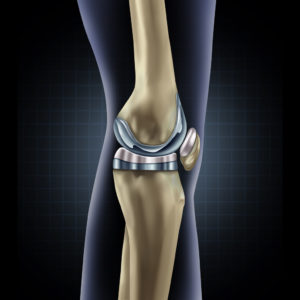Knee replacement surgeries have transformed the lives of millions, offering relief from chronic knee pain and improved mobility. However, like any major medical procedure, there are instances where a knee replacement may need to be revisited or revised. This is where the role of precise diagnostics becomes crucial. Let’s explore the various diagnostic techniques used in knee replacement revisions, such as imaging and clinical assessments. Understanding Knee Replacement Revision Knee [Read More]
Knee Revision
Why You Should Visit a Knee Replacement Revision Specialist
The key to a successful knee replacement is a proper and full recovery process. Around 95% of patients who undergo knee replacement surgery in the United States experience favorable long-term outcomes, but that means 5% of the estimated 600,000 total knee replacements require revision surgery in the first 10 years. You can’t go to just any orthopedist for revision surgery, because this is a special type of operation that warrants the ability to perform a correction to a prior surgery. The [Read More]
When Should You Consider a Knee Revision Surgery?
Despite the remarkable success rates of knee replacement procedures—with roughly 90 percent of patients reporting that their knee prostheses are still functioning well 15 years after their surgery—they are not foolproof. The American Association of Hip and Knee Surgeons (AAHKS) reports that there is up to one percent chance each year that a patient's knee implant can fail. A knee revision surgery is a procedure used to address a failed knee replacement. It involves either replacing only the [Read More]
Customized Unicompartmental Knee Arthroplasty
Abstract Customized unicompartmental knee arthroplasty (C-UKA) utilizes implants manufactured on an individual patient basis, derived from pre-operative computed tomography images in an effort to more closely approximate the natural anatomy of the knee. The outcomes from 349 medial and lateral fixed-bearing C-UKA were reviewed. Implant survivorship analysis was conducted via retrospective chart review, and follow-up analysis was conducted via a single postoperative phone call or [Read More]
How Successful Is Knee Revision?
Knee replacement is deemed as among the most successful surgeries in orthopedic medicine, with up to 90 percent of patients experiencing substantial pain relief and restoration of function after their surgery. Over time, however, a knee replacement can fail for a number of reasons. These include infection, leg fracture, and improper positioning of the prosthesis. Knee implant failure can result in persistent knee pain, instability, and stiffness, rendering the patient unable to carry out [Read More]






